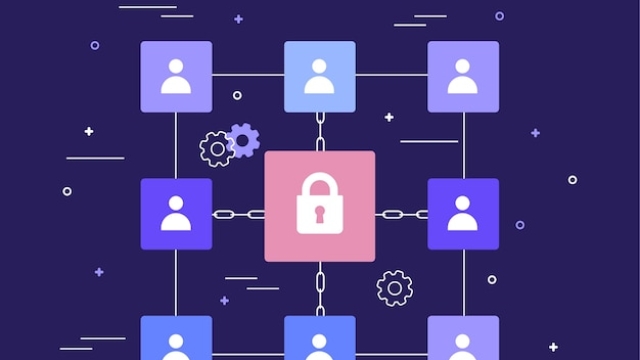The future of trust is being revolutionized by the immense potential of blockchain. As an innovative technology, blockchain offers a decentralized and transparent way of record keeping and transactional verification. Its foundation lies in a network of computers, known as nodes, that collaboratively maintain a shared ledger. This distributed nature ensures that no single entity has control over the data, making the system resistant to manipulation and providing unparalleled security. With its ability to offer trust in an inherently trustless environment, blockchain is poised to transform industries, economies, and societies alike.
Applications of Blockchain Technology

Blockchain technology has gained significant attention in recent years due to its wide range of applications across various industries. This innovative technology has the potential to revolutionize the way we handle transactions, store data, and establish trust. In this section, we will explore some of the key applications of blockchain technology.
Financial Services
One of the most well-known applications of blockchain technology is in the financial services sector. Blockchain provides a decentralized and transparent system, which can streamline processes, reduce costs, and enhance security. It enables faster and more efficient cross-border transactions, eliminating the need for intermediaries and reducing transaction fees. Additionally, blockchain can facilitate the issuance and management of digital assets, making it easier to tokenize real-world assets and increase accessibility to investments.
Supply Chain Management
Blockchain technology has the potential to transform supply chain management by ensuring transparency and traceability throughout the entire process. By recording each transaction or event on a blockchain, stakeholders can easily track the journey of a product from its origin to the end consumer. This can help in verifying the authenticity of products, preventing counterfeiting, and improving overall supply chain efficiency. Furthermore, blockchain can enable smart contracts and automate certain aspects of supply chain operations, leading to greater accuracy and cost savings.
Healthcare
In the healthcare industry, blockchain technology can address significant challenges such as secure sharing of patient data, tracking the provenance of drugs, and improving clinical trials. By using blockchain, patients can have more control over their medical records while still ensuring their privacy. Healthcare providers can securely share patient information, reducing administrative burdens and enhancing collaboration. Moreover, blockchain can assist in tracking the entire lifecycle of a drug, ensuring its authenticity and minimizing the risk of counterfeit medicines entering the market. This technology also has the potential to streamline clinical trials by securely storing and sharing trial data, improving transparency and data integrity.
(Blockchain technology offers numerous applications across various sectors, ranging from finance and supply chain management to healthcare and beyond. Its decentralized nature, transparency, and security features make it a promising solution for many industries.)
Benefits of Blockchain in Enhancing Trust
Blockchain technology offers numerous benefits that can significantly enhance trust in various industries.
Increased Transparency: One of the key advantages of blockchain is its ability to provide transparent and immutable records. With blockchain, all transactions are recorded and stored on a decentralized ledger. This means that once a transaction is recorded, it cannot be altered or manipulated without the consensus of all participants. This transparency ensures that all stakeholders have access to accurate and trustworthy information, reducing the possibility of fraud or manipulation.
Enhanced Security: Blockchain technology is inherently secure due to its decentralized and cryptographic nature. Each transaction is encrypted and linked to the previous transaction, forming a chain of records. This makes it extremely difficult for hackers to tamper with data or gain unauthorized access. Furthermore, blockchain’s consensus mechanisms, such as proof of work or proof of stake, add an extra layer of security by requiring participants to validate transactions, reducing the risk of malicious activity.
Streamlined Processes: By eliminating the need for intermediaries and relying on a decentralized network, blockchain can streamline processes and reduce inefficiencies. Traditional systems often involve multiple intermediaries, leading to delays, errors, and higher costs. With blockchain, transactions can be executed directly between parties, reducing the need for intermediaries and enabling faster and more cost-effective transactions. This streamlined approach not only enhances trust but also improves the overall efficiency of various processes.
In conclusion, blockchain technology has the potential to revolutionize trust by providing increased transparency, enhanced security, and streamlined processes. These benefits can be leveraged across industries to foster a more trustworthy and efficient ecosystem.
Challenges and Potential Solutions in Blockchain Adoption
Blockchain technology has emerged as a powerful tool with the potential to revolutionize various industries. However, its widespread adoption faces several challenges. In this section, we will explore some of these challenges and discuss potential solutions.
EckoScalability: One of the primary challenges in blockchain adoption is scalability. As the number of transactions increases, traditional blockchains struggle to handle the growing volume efficiently. This results in slower transaction times and increased costs. To overcome this challenge, researchers are exploring various approaches, such as sharding and off-chain solutions. Sharding divides the blockchain into smaller parts, allowing for parallel processing of transactions. Off-chain solutions, on the other hand, involve conducting certain transactions outside the blockchain and then recording the final outcome on the blockchain, reducing the overall load.
Interoperability: Another hurdle in blockchain adoption is the lack of interoperability between different blockchain networks. Currently, most blockchains operate in isolation, limiting their ability to communicate and share data. Developing standards and protocols that enable seamless interoperability is crucial for maximizing the potential of blockchain technology. Projects like Cosmos, Polkadot, and Interledger are working towards creating interoperability frameworks, allowing different blockchains to interact and exchange information effectively.
Regulatory and Legal Frameworks: The decentralized nature of blockchain presents regulatory and legal challenges. Governments and regulatory bodies are still grappling with defining regulations for blockchain-based applications. Concerns regarding privacy, security, digital identity, and the potential misuse of blockchain technology need to be addressed. Collaborative efforts between technology innovators and policymakers are essential to develop comprehensive regulatory frameworks that promote innovation while ensuring consumer protection and security.
In conclusion, while blockchain technology holds immense promise, its widespread adoption requires overcoming several challenges. Scalability, interoperability, and regulatory frameworks are among the key hurdles that need to be addressed to unleash the full potential of blockchain. With ongoing research, collaboration, and innovation, solutions can be developed to foster blockchain adoption and drive the future of trust.



